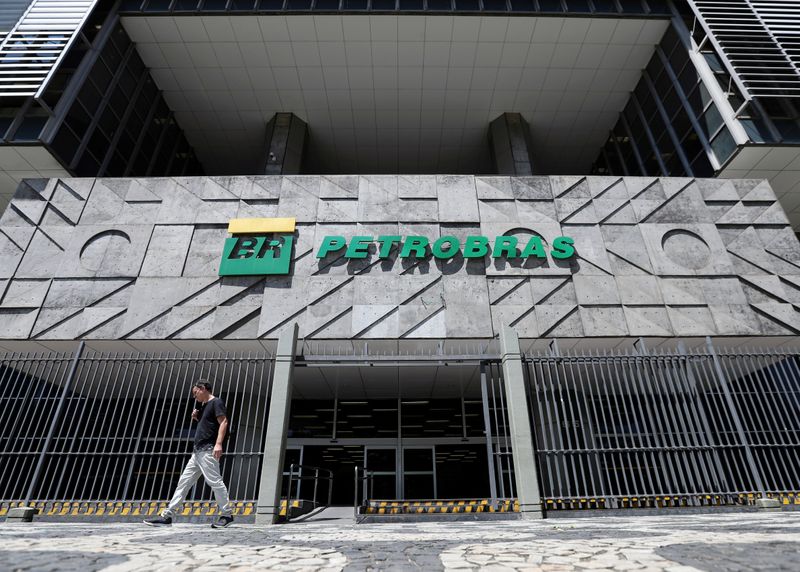This post was originally published on this site
https://i-invdn-com.akamaized.net/trkd-images/LYNXMPEG2U1L3_L.jpg
SAO PAULO (Reuters) – Latin American companies from oil behemoth Petrobras to cement maker Cemex, facing drastic coronavirus-linked revenue declines, are rushing to draw down credit lines amid a shutdown in local bond markets and a paucity of state aid.
The dash for cash is in line with a broader move by businesses worldwide amid a plunge in demand. But a paucity of quantitative-easing style monetary policies or other state support for companies is emerging as an added regional stress factor.
“In my entire career, I’ve never seen companies seeking so much money as now. Not even in the 2008 financial crisis,” said an experienced executive at one of Brazil’s top lenders.
Since concerns about the coronavirus pandemic hit the region, disbursement on revolving credit lines have risen to an average of 65% from a previous 10 percent, said a senior executive at one of the largest U.S. banks in Latin America, adding he expects it to reach 100% in the short term.
Brazil’s state-controlled oil company Petroleo Brasileiro SA (SA:PETR4) has said it cashed out almost $9 billion from its revolving credit lines and Vale SA (SA:VALE3) has drawn down $5 billion.
Other regional behemoths such as Mexico’s America Movil SAB de CV (MX:AMXL), Cemex (MX:CEMEXCPO) and brewer Ambev (SA:ABEV3) have also drawn billions on their revolving credit lines, according to two sources with knowledge of the matter.
Mexico’s petrochemical group Orbia Advance Corp (MX:ORBIA) said late last week it was drawing down $1 billion of its revolving credit line as well. Media company Televisa drew $600 million.
Cemex Group confirmed in a statement to Reuters it has drawn on existing lines of credit to improve its liquidity and is also weighing whether to delay some planned capital expenditures. Ambev said it continues to evaluate opportunities to boost its liquidity, despite having ended 2019 with 12 billion reais in cash. America Movil did not reply to requests for comment.
Companies seeking new credit lines include poultry exporter BRF SA (SA:BRFS3), which is looking for 2 billion reais, and airline Azul (N:AZUL), which did not disclose the amount it is seeking in additional borrowing.
The Brazilian subsidiary of Fiat Chrysler SpA (MI:FCHA) is also seeking additional credit lines, one source with knowledge of the matter said. Fiat said through a spokesman that it is aiming to “ensure access to credit lines when necessary.”
Smaller companies that lack access to revolving credit lines are rushing to get bank loans, while also cutting investment plans and postponing dividend payments.
Around half of 245 Brazilian listed companies analyzed by consultancy Economatica have enough cash to sustain operations without revenue for three months, but around 25% will run out of cash in less than a month.
Banks are adding pressure on companies, demanding higher rates and extending shorter maturities on loans. One of Brazil’s biggest lenders has set a maximum term for new credits of one year, compared to more than six years before the coronavirus outbreak, an industry source said.
A partner at a private equity fund in Brazil said one of its portfolio companies had been paying Brazil’s interbank benchmark rate, known as CDI, plus 1% for a six-year loan before the pandemic. When the company recently sought an additional loan, the rate had soared to CDI plus 5% for a two-year loan. It accepted the terms anyway.
“I see new loans as an insurance policy now,” the private equity partner said. “Despite soaring prices, we prefer to cash out because we don’t know what will happen next.”
Fearful of potential bankruptcies, local and international banks are not extending loans to Latin American airlines or travel agencies, the senior U.S. banker added.
Reacting to the lack of private credit, Brazilian development bank BNDES said on Sunday it will line up emergency financing for airlines in April.
But Brazilian measures have often been slow and sometimes ineffective. A first central bank move to reduce capital required in lending failed to boost credit and led the regulator to implement further steps.
The central bank will provide liquidity to banks that acquire corporate bonds and is seeking authority to buy such debt directly, emulating the U.S. Fed.
Brazil’s Treasury and lenders Itau Unibanco Holding SA, Banco Bradesco SA and Banco Santander (MC:SAN) Brasil SA also promised to lend 40 billion reais ($7.8 billion) to fund the payroll of small companies.
Even so, smaller listed and private companies that were relying on the sale of securitized credit to Brazilian asset-backed funds known as FDICs, are finding the market is frozen for companies in all industries.
“Mid-sized companies relied on receivables to get credit, and as their cash flow becomes unpredictable, it has been much harder to get financing” said lawyer Luiz Meneghini Souza, partner at Souza Mello Torres law firm.
Aid has also been slow to come in Mexico, although banks there have offered clients deferred payments on loans at the finance ministry’s recommendation. Business groups are also lobbying the government to temporarily suspend or defer taxes.
The country was downgraded by Standard & Poor’s on March 26 due to the fall in oil prices.
($1 = 5.0908 reais)


